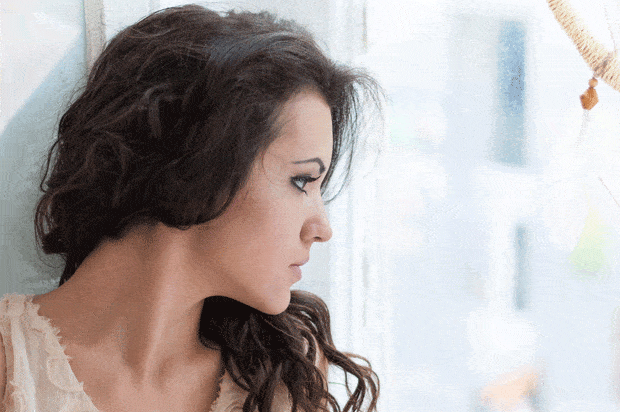Suicide and Grief
Grief is something that we'll all experience at some point in our lives. It happens in different ways, at different times, for different people. Eleanor, 22, shares their story - from dealing with the sudden death of a loved one to finding hope in the darkest of places.

Trigger warning: This article contains references to loss, suicide and grief.
Eleanor is 22 from London and aims to improve knowledge on grief, autism and mental health.
In March 2023, I became a survivor of bereavement by suicide. At the time I was 20, living abroad and I was at a stage of my life where quite frankly nothing bothered me. I was young, carefree and completely unaware that something like this could ever happen to me. I received a call one day telling me that my loved one, who I will refer to as Star, had passed away. Star was my life, my best friend and my biggest source of guidance. Thus when they passed away, my whole world shattered.
A year on, I am finally ready to share my experience in the hopes that I can help other people who may have experienced loss by suicide. Loss is painful, life-changing, and can have long-lasting effects in any capacity, but there are a set of specific experiences attached to suicide loss that are misunderstood by so many.
Guilt
When I first lost ‘Star,’ I expected to experience the five stages of grief. However, my experience did not follow these stages at all, and the principal emotion that I struggled with and continue to struggle with, is guilt.
Why did I not go and see them more?
Why did I get angry at them that one time?
Why was I not enough to make them stay?
All of these thoughts and feelings overwhelmed my mind and made me bedridden for months. One thing I would like to say, however, is that everyone copes with grief in different ways, and to never follow another person’s model of grief.
Anger
While dealing with these overwhelming feelings of guilt, I also felt anger. A lot of my anger was directed towards myself, but also towards Star. I was furious with them for leaving me in this situation. Their pain had been taken, but I felt as though it had been passed directly to me. I constantly asked myself why they would leave me, and why I wasn’t enough to get them to stay. As someone who has struggled with suicidality in the past, I knew that these thoughts were irrational, but I just felt totally overcome with emotion.
Additionally, a lesser known part of suicide loss grief is the anger that religious people, like myself, can feel. Suddenly, the God I worshipped became somebody who had taken away not only Star’s life, but mine too, all at once.
Work and study
At the time, I was studying abroad. I returned immediately to London and took 6 months out of study. A common misconception is that grief has a timeframe, but this is just not true. I returned to study in September 2023 and studied up until February 2024. Upon return, I decided I needed longer, so I decided to postpone my studies for another year. I felt disappointed because I felt as though Star, who valued education so much, would be disappointed in me, until I soon realised that I could not honour them and make them ‘proud’ of me, unless I honoured my feelings first.
Shame
This is something I felt reluctant to talk about, but I feel as though it is important to. I felt ashamed regarding Star’s death. When telling people what had happened, sometimes I couldn’t be honest. I was afraid of judgement, whether that be religious or personal, and to those I did tell, I felt ashamed seeing their reactions. I had masses of people telling me that it was selfish and that it isn’t something I should talk about. In turn, I internalised that and for a while I thought that Star was someone to be ashamed of, instead of proud of for everything they accomplished throughout their lifetime.
Fear
After losing Star to suicide, I became fearful that I would lose someone else to suicide, or lose someone in general. I developed very intense OCD rituals and I would live each day in fear that I would receive more bad news. Eventually, I reached out for help and accepted the correct help, which has enabled me to continue living a very fulfilling life. I have decided to live for both Star AND I now.
Remembering
I conducted a fundraiser for Star, raising money for a charity that was relevant to them and their struggles. I knew that I wanted to honour Star and their memory for the rest of my life. Some of the things that I did included:
- Creating a memory scrapbook full of their photos.
- Booking holidays back to their home-country.
- Honouring myself and my emotions.
- Talking about them often.
- Continuing with my life so I can live for the both of us.
Remember though, how I choose to honour my loved one could be totally different to how you honour yours. That is totally fine.
Living with grief
The most important thing I have learned is that it is important to honour your grief. Not everyday has to be a day that you are proud of. Sometimes simply getting up in the morning and getting some fresh air is enough. Each day is still a battle, but most days I win!
You are not alone
Grief is isolating, scary and intimidating. However, you are never alone in your struggles. Support is always available – I chose to seek counselling and to take medication for my struggles, but these are just examples of how I coped.
Useful resources
- The Mix offers up to eight sessions of confidential and free counselling.
- They also have a guide on how to cope with grief.
- The Survivor of Bereavement by Suicide charity have a helpline to support those specifically affected by suicide loss.
Next Steps
- Anyone can contact the Samaritans on their 24-hour helpline to talk things through. 116 123
- Chat about this subject on our Discussion Boards.
By
Updated on 27-Jun-2024
Sorry, comments closed
No featured article










